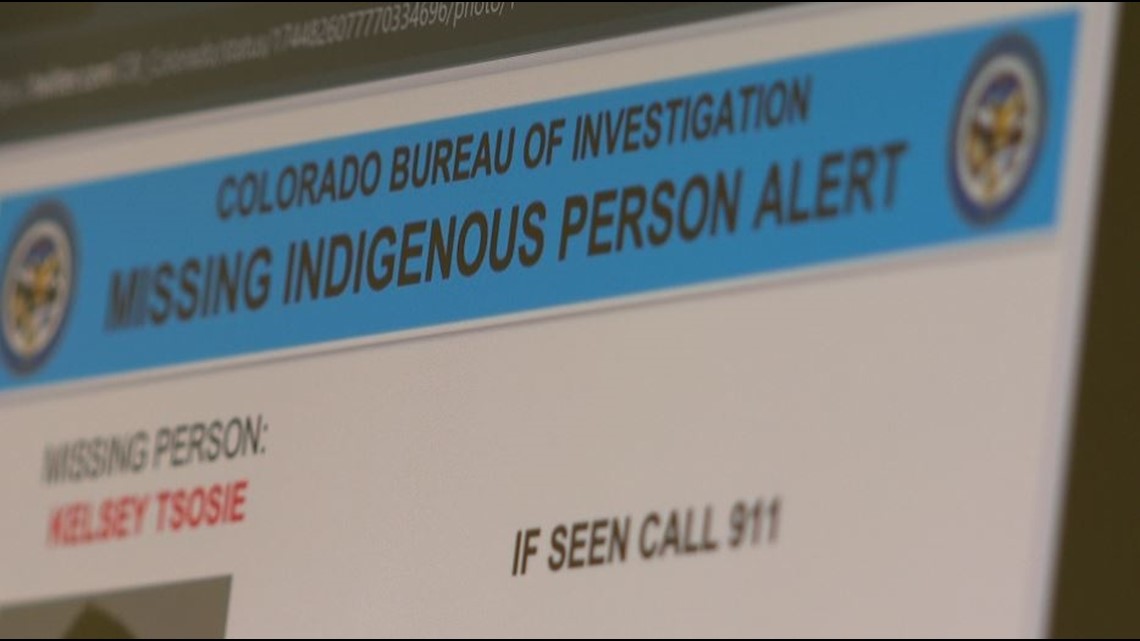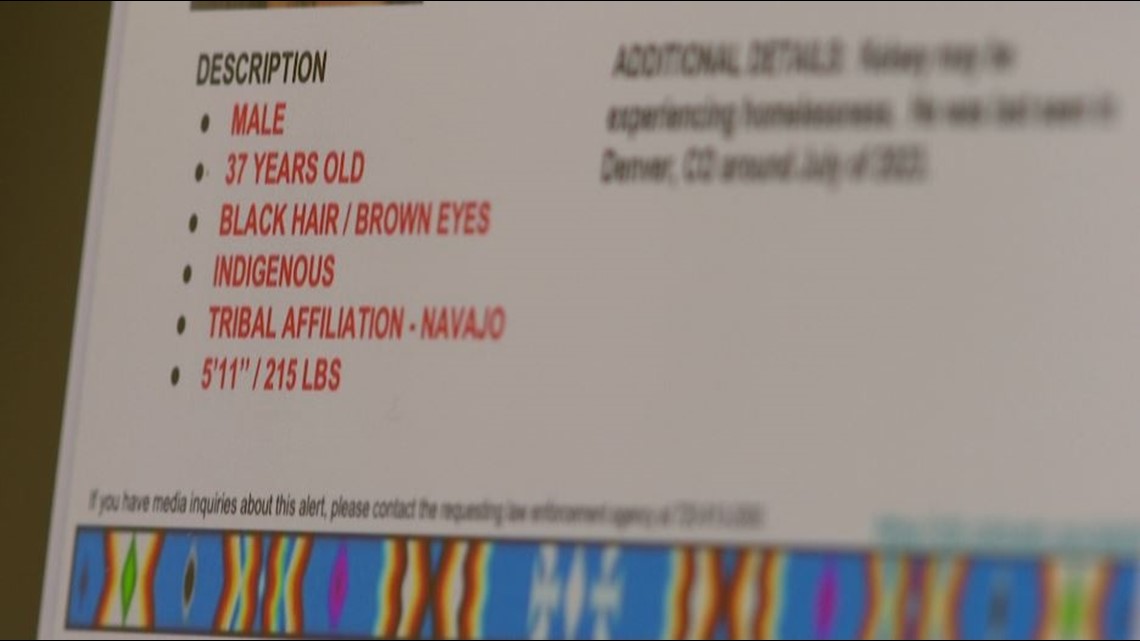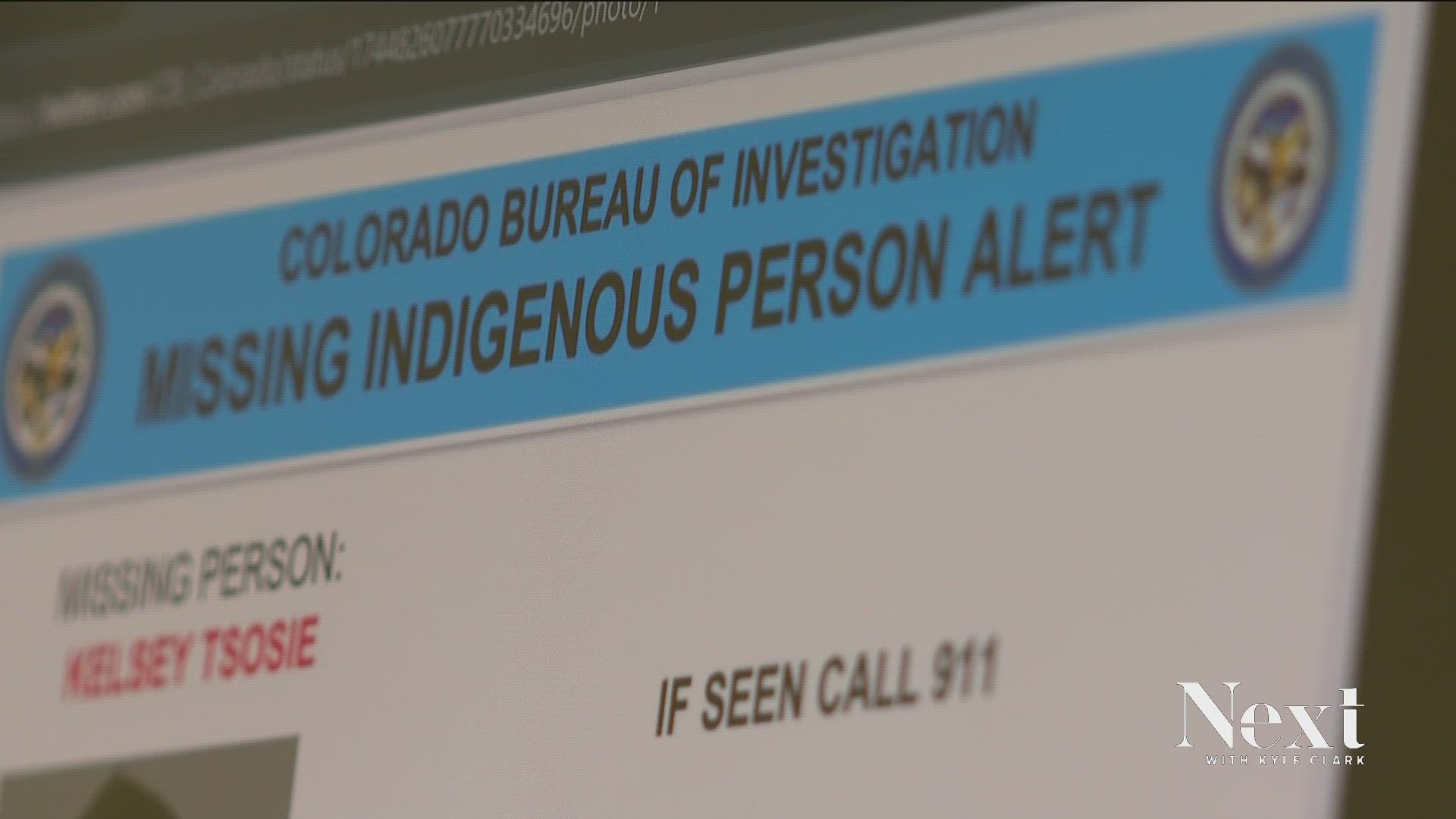DENVER — Colorado's Missing Indigenous Person Alert system has been in effect for a year now, but 'in effect' and 'effective' are hold different meanings when it comes to how the alerts are used.
"I'm trying not to use profanity," Raven Payment joked as she reflected on a word that would describe the last year. "It’s a dichotomy. High highs, low lows."
Payment is a member of the Missing & Murdered Indigenous Relatives Task Force of Colorado. She and her colleague, Monycka Snowbird, spent 2023 continuing to push for the Missing Indigenous Person Alert (MIPA). The alert system went into effect in late 2022, but the frequency of its use is something Payment and Snowbird are struggling with.
"It is exhausting," Snowbird said. "Sometimes you feel like you're beating your head against a wall because it's never going to end."
"The work we’ve had to do just to get law enforcement to use this tool to issue the alert, where it takes days to do that, again, arduous comes to mind. It’s been quite a haul," Payment added.


While there are criteria to implement MIPA, even if they are met, Payment and Snowbird told 9NEWS law enforcement sometimes isn't activating it.
"We thought the MIPA would be mandated and that no one would have an option as to whether they were using this or not. And that turned out that this is an optional investigative tool that law enforcement can use at their discretion if they think it’s going to be helpful," Snowbird explained. "We’re trying to work out all the bugs now so we can get this to be a mandated alert across the state."
The Colorado Bureau of Investigation (CBI) is the agency that sends the alerts. In a statement to 9NEWS, a spokesperson for CBI said, "There's a lot that's not finalized yet. I think the best statement would be that we're looking to make changes that make this effort as streamlined and as easy as possible to navigate."
According to CBI, in its first year, MIPA's are one of the state's top three most-used alerts. As of Wednesday afternoon, the state's dashboard stated it issued 47 alerts since its roll out, but Payment said that number is outdated.
"It's not current. So, there are 50, as there was an alert that went out last night," Payment continued. "If we were getting the alert to be more streamlined, I'm confident that that statistic would be much more dire and realistic."


'Realistic' is how Payment and Snowbird want to paint the past few months. They believe many of those alerts wouldn't have been issued if it weren't for them urging law enforcement agencies to activate it.
It's something they hope changes this new year.
"When it does go out, we find people on average within a week of the alert being issued," Snowbird said. "It's obviously needed, it's obviously effective."
Payment and Snowbird are giving CBI and its partnering law enforcement agencies a few months to get the alert system much more streamlined. They are hopeful the agencies will get it done, but if they don't, they would consider pushing legislation to get this system mandated.
More from Jaleesa Irizarry:
SUGGESTED VIDEOS: Next with Kyle Clark

